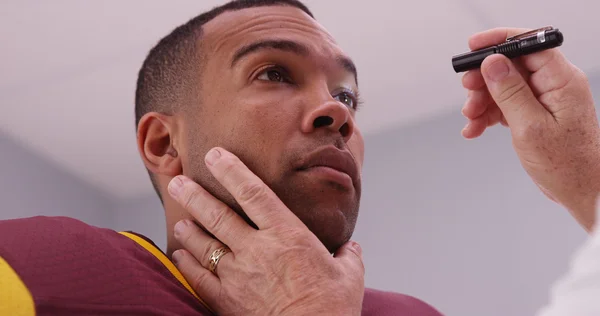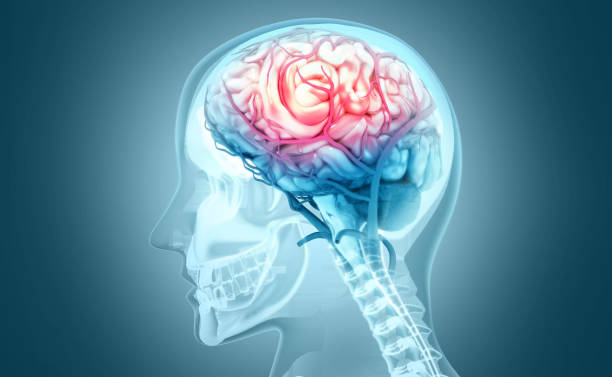Signs, Symptoms, and How Physiotherapy Can Help
Signs and Symptoms of Concussion:
Identifying a concussion can be challenging as symptoms may not appear immediately after the injury. They can manifest within minutes to hours and even days following the incident. Common signs and symptoms of a concussion include:
- Headache: Persistent or worsening headache is a typical symptom of a concussion.
- Dizziness or Vertigo: Feeling lightheaded, dizzy, or experiencing a spinning sensation.
- Nausea and Vomiting: Upset stomach or vomiting, often accompanied by dizziness.
- Confusion or Disorientation: Difficulty concentrating, feeling foggy, or having memory problems.
- Sensitivity to Light and Sound: Increased sensitivity to light and sound stimuli.
- Fatigue: Feeling tired or having low energy levels despite adequate rest.
- Changes in Sleep Patterns: Insomnia, difficulty falling asleep, or excessive drowsiness.
- Mood Changes: Irritability, anxiety, or feelings of sadness.
- Balance Problems: Difficulty maintaining balance or coordination.
- Visual Disturbances: Blurred or double vision, seeing stars, or having difficulty focusing.

How Physiotherapy Can Help:
Physiotherapy plays a crucial role in the multidisciplinary approach to concussion management and rehabilitation. Other healthcare practitioners that often play a vital role along with physiotherapists include; occupational therapy, counselling, audiology, optometry, and your family physician. Physiotherapists are trained to assess and address a wide range of symptoms associated with concussions. Here’s how physiotherapy can aid in the recovery process:
Symptom Management:
Physiotherapists can employ various techniques to manage symptoms such as headaches, dizziness, and balance problems. These may include manual therapy, vestibular rehabilitation, and specific exercises aimed at improving balance and coordination.
Following a concussion, it’s essential to gradually reintroduce physical activity to prevent exacerbating symptoms and facilitate recovery. Physiotherapists can develop individualized exercise programs tailored to each patient’s needs, gradually increasing intensity as tolerated
Neck injuries often accompany concussions, contributing to symptoms such as headaches and dizziness. Physiotherapy techniques such as manual therapy and therapeutic exercises can help alleviate neck pain and improve function.
Physiotherapists play a vital role in educating patients about concussion management, including the importance of rest, activity modification, and strategies for symptom management. Counselling on ergonomics and lifestyle modifications may also be provided to promote optimal recovery.
For athletes recovering from a concussion, physiotherapists can collaborate with other healthcare professionals to develop a comprehensive return-to-sport protocol. This involves a step-by-step progression of activities to ensure a safe and successful return to competitive sports.
Physiotherapists with special training can help improve the function of your vestibular system post concussion. The vestibular system is in your inner ear, and is often affected when someone sustains a concussion. The vestibular system is one very important part of balance. What you see with your eyes and your proprioception (what you feel underneath your feet) also help make you stay balanced.
When to seek help from a Physiotherapist:
If you suspect you or someone you know has sustained a concussion, it’s crucial to seek medical attention promptly. A physiotherapist can play a valuable role in the management and rehabilitation of concussions, especially in addressing persistent symptoms and facilitating a safe return to normal activities. You should consider seeing a physiotherapist if:
- You experience any of the signs and symptoms of a concussion listed above, especially after a head injury.
- Symptoms persist or worsen over time, despite rest and symptom management strategies.
- You’re an athlete looking to safely return to sport following a concussion.
- You are currently taking time off of work or school and looking to safely return to these activities.
Frequently asked questions:

Over 50% of people will recover in 2-4 weeks post concussion. The remainder of people may require further treatment and monitoring. Luckily, early detection and implementation of rehab protocols can shorten this time period.
Rest initially after concussion is no longer considered the only way to manage symptoms. It is important to implement low-intensity physical and mental activity early on to promote recovery. This phase can be confusing and difficult to navigate, and this is why having a healthcare practitioner to guide you is so important.
Conclusion:
Concussions are serious injuries that require proper management and rehabilitation to ensure a full recovery. Physiotherapy is an integral part of concussion management, offering effective symptom management, rehabilitation, and guidance throughout the recovery process. If you or someone you know has experienced a concussion, don’t hesitate to seek the expertise of a qualified physiotherapist for personalized care and support.
